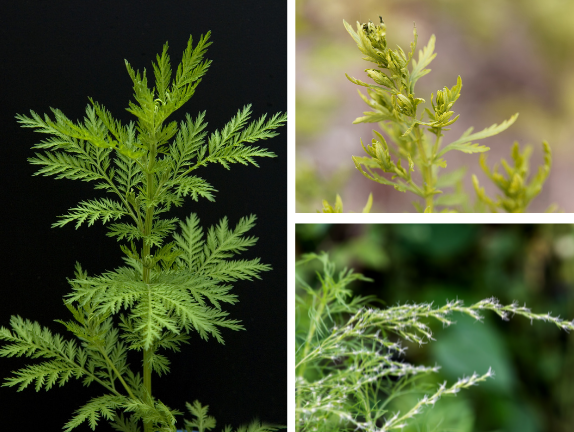Latin Name: Artemisia annua
Herb Class/Action: Healthy Microbial Balance, Healthy Inflammatory Response Support
Parts Used: Aerial parts
Flavors: bitter, astringent
Energetics: Bitter, cooling
Traditional Benefits: digestive health, immune support
Sweet Annie has been used for more than 2,000 years to support immune health, healthy digestion and maintain microbial balance.*
Native to China but growing wild across the globe now, Sweet Annie is a bitter, cooling herb known for its bitter, microbiome-supporting phytochemicals that help to create a favorable environment for healthy bacterial and fungal balance. This fern-like leafy plant is related to Wormwood and Mugwort. Where Wormwood has an affinity for the gut, and Mugwort is more akin to reproductive health, Sweet Annie shines in terms of gut, reproductive, and even lung & immune health.
Like its name suggests, Sweet Annie has a somewhat sweet, camphor-like fragrance that opens and moves, like a deep breath on a crisp day. On a warm, breezy morning, you’ll probably smell the plant even before you spot it.

Most commonly prepared as a tincture or tea, Sweet Annie has been used for more than 2,000 years in digestive health and immune remedies. Sweet Annie contains flavonoids, essential oils, and artemisinin (a widely studied compound with more research published year after year).
Bitter and cooling in nature, Sweet Annie is traditionally known in Chinese Medicine to help balance excess “heat” in the body—helping to provide relief from heat-related states that may affect digestion and immune health. While “heat” according to TCM is a complex topic to break down and explain, and has many possible underlying contributing factors, it can generally be summarized as a condition of “excess” or “fullness” that results from a Yin-Yang imbalance, aka a break in homeostasis.
It gets complicated, as sometimes what appears as “heat” on the surface is in fact “false” or “empty heat,” aka deficiency masquerading as excess due to a lack of moisture, lubrication, and vitality reserves in the body, known as Yin Deficiency. Sweet Annie, being bitter and cold, would be used for true heat only rather than empty heat.
Contraindications: Sweet Annie should not be consumed while pregnant or nursing.
While “Sweet Annie” sounds meek and mild, this plant can actually grow to be quite loud and large, maturing at a height of up to 6 feel tall with abundant yellow flowers.